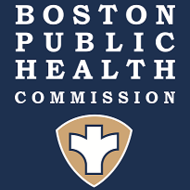Combined Sewer Overflow Health Alerts
Public health warnings related to sewage discharges are posted on this page. There are currently no active public health warnings related to sewage discharge.
A combined sewer overflow (CSO) occurs when a large storm overwhelms the combined sewerage system causing rainwater to mix with wastewater and discharge to a nearby water body. This prevents sewage backups into homes and businesses.
State regulations require local public health departments to provide notice to the public when these discharges may create a risk to public health, including when a discharge lasts for more than two hours.
The public is advised to avoid contact with affected water bodies for at least 48 hours after a sewage discharge or overflow, during rainstorms, and for 48 hours after rainstorms end, due to increased health risks from bacteria or other pollutants associated with urban stormwater runoff and discharges of untreated or partially treated wastewater.
For more information about CSOs and to sign up for CSO notifications for Boston Harbor and Fort Point Channel, please visit the Boston Water and Sewer Commission’s CSO notification page.
For notifications and alerts for sites on or around the Charles River, please visit the MWRA’s CSO notification page.






